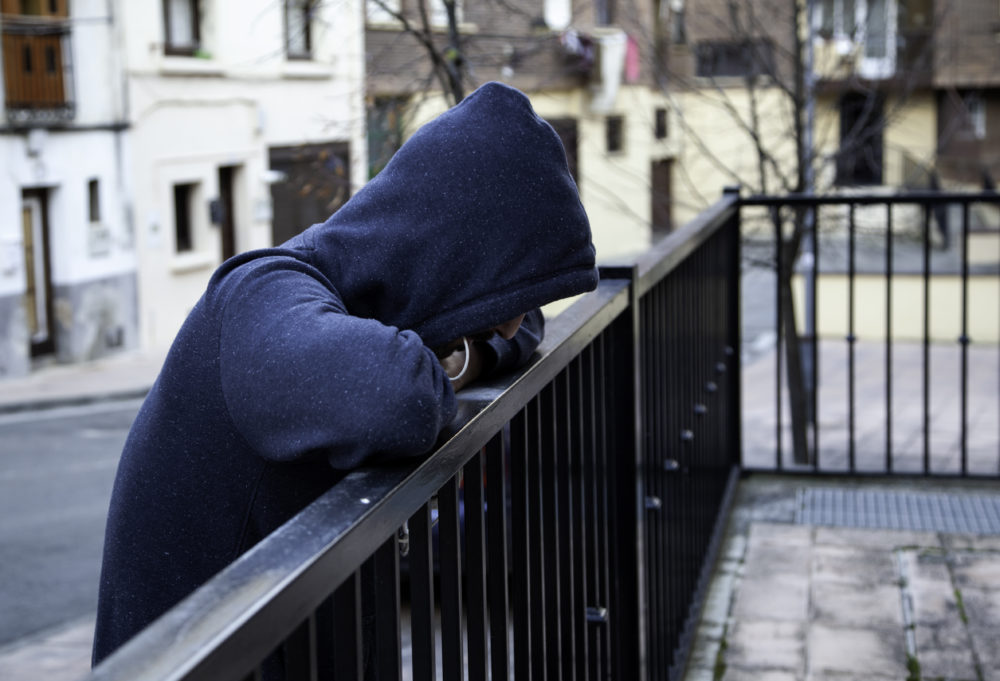The past couple of years have been some of the deadliest for many major U.S. cities. Murder rates have spiked and gun sales have surged.
We want the violence to stop. However, our chosen means of addressing violence prevention are shaped by who’s leading that conversation. Too often, the results of those discussions have tended to be punitive in nature, resulting in over-policing and mass incarceration.
Excessively punitive crime controls are reflected in stop-and-frisk practices, tough-on-crime imprisonment and other reprehensible policies that have fallen hardest on people of color. In addition to reflecting unequal treatment in policing and in the courts, driven by racial bias, those policies reflect a lack of empathy.
Yet, considering the circumstances of individuals who commit acts of violence in no way absolves them of the harms they have done. Rather, it encourages a holistic exploration of a variety of frequently underlying factors.

Courtesy of Jordan Costa
Jordan Costa
For some, experiencing inequality can worsen pre-existing fear, anger, resentment and other deleterious effects of living on society’s margins. Economic and other inequalities, as well as lack of social support, have been associated with upticks in homicide. As a spin-off of all that, “victims of violent crime have been shown to be more likely than others to later engage in violence.”
Those realities are foundational to trauma-informed approaches to violence prevention. Those who are positioned to decide how to deal with perpetrators of violence must confront those double-edged facts.
Consider this true-life story of a young man I will call Josh, to protect his anonymity: When Josh is 10, coming of age in a low-income household, his father is sentenced to prison, convicted for marijuana possession and distribution. His mother works part-time jobs to support him and his two siblings. That grave instability prompts Josh, a schoolkid who cares for his siblings while his mother is at work, to explore ways to support the family.
One year, as the holidays are approaching, Josh seeks ways to make quick cash so his family can have a decent Christmas. When some schoolmates who manage to wear designer clothes, yet come from his same impoverished neighborhood, encourage him to join them in drug-dealing, Josh says he’s “all in.” To protect himself during those transactions, he buys a gun. In one week, Josh makes triple what it takes to cover the family’s monthly rent.
After the holidays, he keeps dealing until, caught in the crossfire of a turf war, he’s shot in the stomach. From his hospital bed, Josh refuses to answer police questions without a lawyer present. Amid an uptick in firearm violence, law enforcement officials flag him as a “high-risk violent criminal.”
Suspicious that Josh is helping police investigators, someone offers a $5,000 reward to whoever kills Josh. Then, after he’s released from the hospital, Josh, in self-defense, shoots some guys trying to rob him of whatever product and cash he was carrying at the time. He’s convicted on several drug charges, including possession and intent to distribute, then remanded to lock-up — just like his father.
Hold culprits accountable, and consider traumas endured by some of them
Josh was one of my clients. His tragic story is hardly unique.
A trauma-informed approach to holding Josh accountable would have considered the adverse impact of having his father ripped from his family’s home and, a few years later, still a child, feeling compelled to help financially support a four-person household. It would have considered the psychological damage of being shot and of knowing that people were willing to pay to have him killed. It would have considered the implications of living in a neighborhood whose travails included deeply strained relations with police.
Josh would have been better served, for example, by hospital-based violence intervention or street outreach programs that take a public health approach and work to encourage individuals to transition out of a dangerous, even potentially fatal, lifestyle. Other programs, including ReCAST in Chicago, take a behavioral health approach, working to building up inner resilience and other aspects of wellness in communities plagued by violence. These are promising, trauma-informed strategies that would benefit from long-term fiscal investment.
Josh has been incarcerated since 2015, when he was 16 years old. Josh’s siblings lost another caretaker, Josh’s mother is still in financial distress, drugs are still being dealt and people are still being shot. So, what did our current system do other than cause more trauma? How can we require that programs and policies that seek to hold individuals accountable be trauma-informed? How can we demand that our public safety systems be held accountable, too?
As a society, broadening our horizons and remedies on this front requires talking and listening hard to people on the ground, often with lived experience like Josh’s, who are working to stop the violence. They are the experts. By centering them in solution-oriented conversations, we can create pathways for members of impacted communities to feel empowered and foment change.
We all have a role to play in cultivating communities that condemn harm, demand accountability and freely offer empathy. If reducing violence is truly our shared goal, lawmakers and other powers must stop being complicit in victimizing the vulnerable.
New Jersey Gun Violence Research Center Fellow Jordan Costa is project manager of the Giffords Law Center to Prevent Gun Violence’s Community Violence Initiative and a Rutgers University School of Criminal Justice doctoral candidate whose work is propelled, in part, by losing her father to gun violence.
































